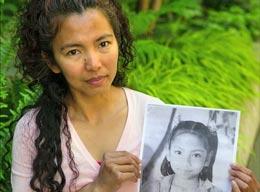Conservatives turn deaf ear to mother's pleas

Because she has a deaf daughter, a Filipina caregiver cannot become a permanent resident of Canada, according to Citizenship and Immigration Canada.
Karen Talosig, who has worked as a caregiver in Vancouver since 2008, learned that her 14-year-old daughter Jazmine would be too burdensome on the public system. She would need more than $91,000 in special education funding over five years.
The special education funding policy website of B.C.’s education ministry says school districts are eligible to apply for up to $18,300 per deaf student per year, depending on what the needs are. Over five years, the total would be $91,500 If a person’s condition would cost the public system more than $6,327 a year, that person will be found inadmissible on medical grounds, Citizenship and Immigration Canada spokeswoman Nancy Caron said in an interview with the Vancouver Sun.
The BC School for the Deaf and the Burnaby school district wrote letters of support for Talosig to the government. Despite their efforts, the government did not change its mind and stated that Talosig was not eligible for permanent residence since she has an inadmissible family member.
In 2009, Talosig worked for Helene Whitefield, a KItsilano resident. In 2010, Talosig applied for permanent residence for herself and her daughter. When she told immigration officials her daughter was deaf, she was not informed about her daughter being a potential financial burden on the public system.
Before a final decision is made, Citizenship and Immigration Canada has given Talosig another 60 days to submit more documents.
To sign the petition, visit http://www.thepetitionsite.com/410/685/779/ask-immigration-minister-chris-alexander-reverse-decision-made-regarding-deaf-child/






